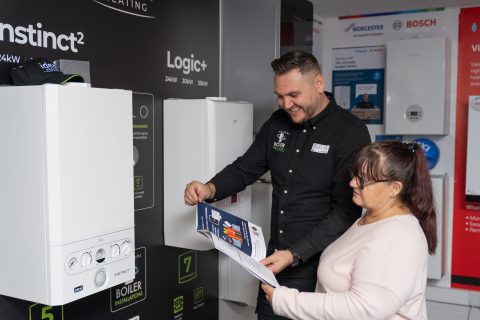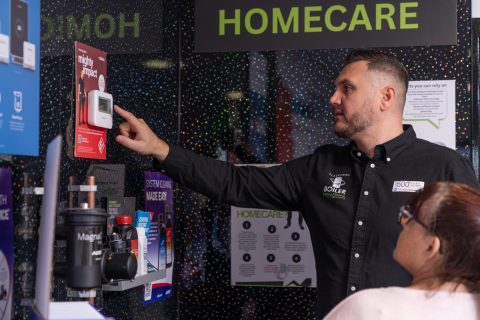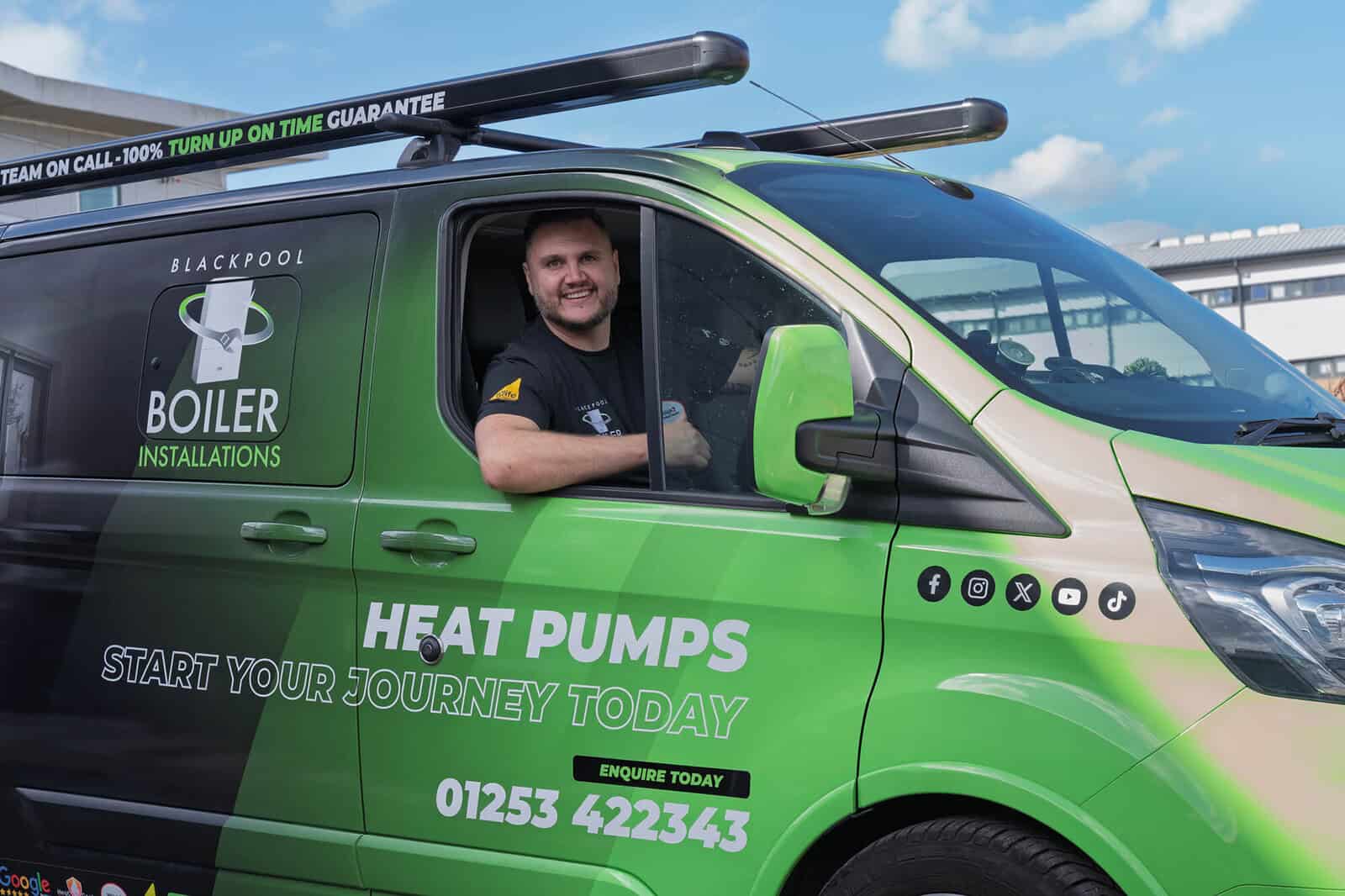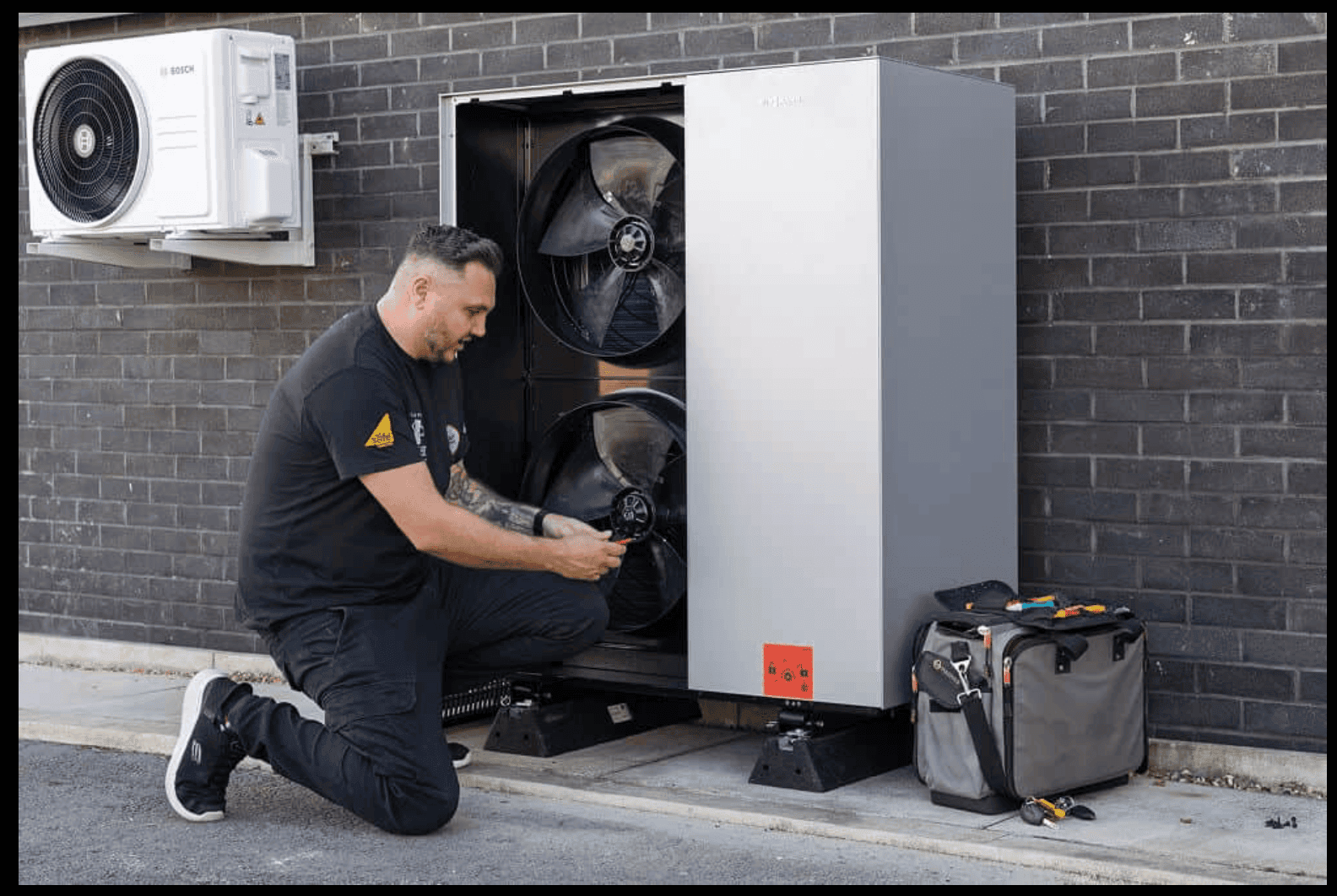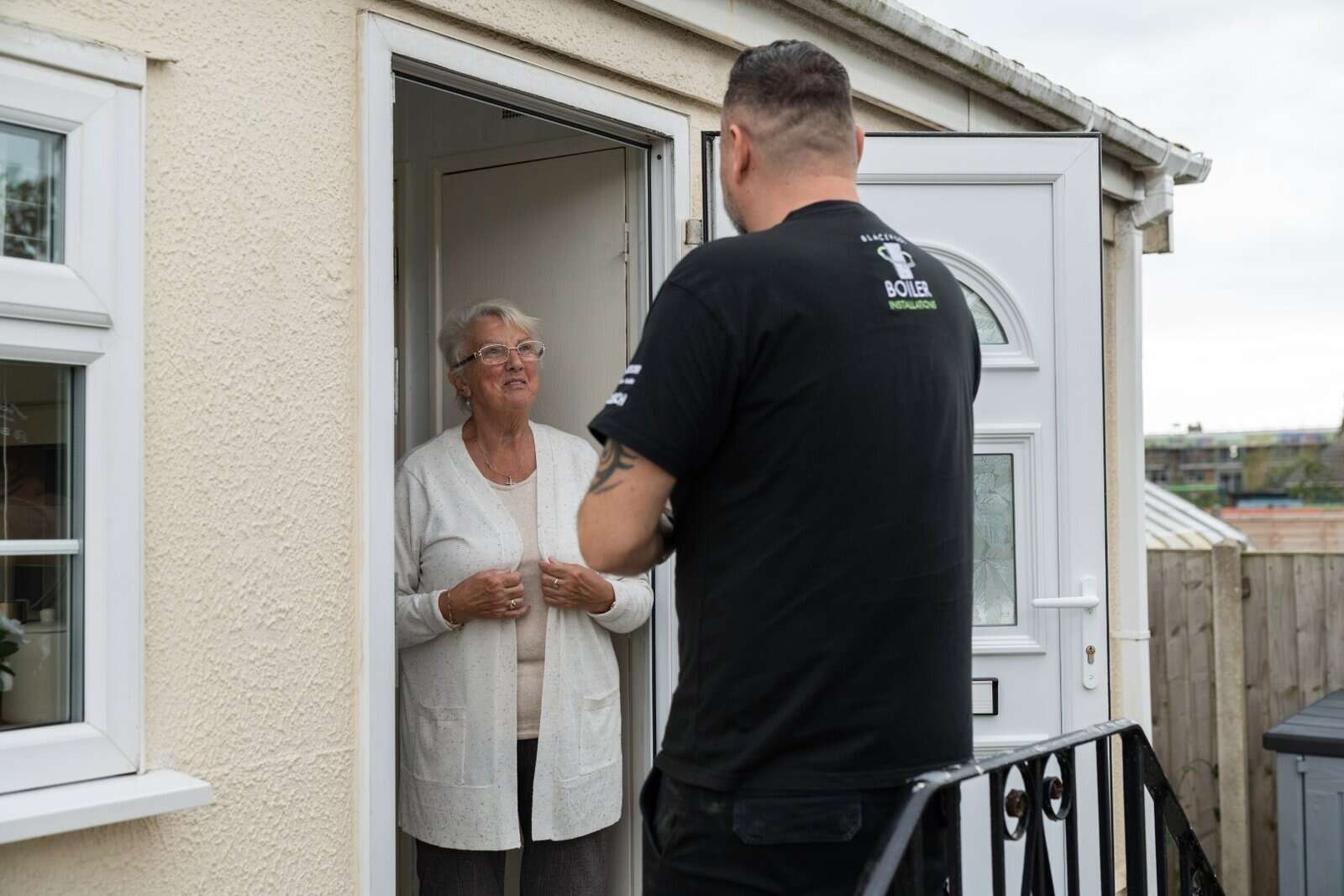
What To Do When Your Radiator’s Not Warming Up - A Blackpool Boilers Guide
Radiators not warming up?
A cold radiator in winter is more than just inconvenient - it’s uncomfortable, inefficient, and could point to a more serious central heating issue. If you’ve noticed your radiators aren’t getting hot like they should, this guide will walk you through everything you need to check, troubleshoot, and when to call in a professional.
Why Radiators Sometimes Don’t Warm Up
Before diving into the steps, it helps to understand the common causes. Knowing what might be going wrong can save time, worry and money.
- Trapped air - One of the most frequent culprits. Air blocks circulation of hot water.
- Faulty or closed radiator valves - Sometimes valves are partially closed, seized, or misadjusted.
- Cold spots caused by sludge - Over time, rust, debris, or sludge can build up inside radiators or pipes, especially in older systems.
- Issues in the boiler or central heating system - If the boiler isn’t working properly, or there's a drop in water pressure, or a component (pump, diverter valve, etc.) has failed, multiple radiators may be cold.
- Incorrect balancing of the heating system - Heat not distributed evenly. Radiators closer to the boiler may be hotter than those further away.
Step‑by‑Step: What To Check When a Radiator Is Not Warming Up
These steps go from easiest to more complex. Work through them until the problem is solved, or you identify something that needs a professional.
- Check Your Boiler & Central Heating System First
- Is the boiler turning on, heating water, and running without strange noises?
- Check boiler pressure. If it’s too low (or too high), it can prevent proper circulation.
- Do you also have no hot water, or does only heating fail? This can help narrow down whether it’s a boiler issue or just the heating circuit.
- Look for error codes on modern boilers. If something is flashing, note it down.
- Why it matters: If the boiler isn’t working right, none of the radiators will warm properly. It could be a pump problem, sensor, or even a failure in the boiler’s heat exchanger.
- Bleed the Radiators to Release Trapped Air
- If a radiator is warm at the bottom but cold near the top, that’s a sign of trapped air.
- Turn the heating off and wait until the system is lukewarm (for safety).
- Use the correct radiator bleed key, place a cloth underneath, open the bleed valve slowly. You should hear hissing. When water starts coming out steadily (without sputtering), close the valve.
- After bleeding, check the boiler pressure. Bleeding can reduce pressure, so you may need to repressurise the system
- Inspect All Radiator Valves
- There are usually two valves per radiator: the inlet valve (often a thermostatic radiator valve or TRV) and the lockshield valve (controls flow out). Both must be open.
- Thermostatic valves can seize up - meaning even if they’re “on”, they’re jammed. Gently try turning them; if they don’t work smoothly, they may need replacing.
- Sometimes lockshield valves are closed tightly and need adjusting to balance the system.
- Check for Sludge, Limescale, or Blockages
- Sludge tends to settle at the bottom of radiators; this causes the bottom to stay cold while the top heats up.
- Limescale can be an issue in hard‑water areas around Blackpool; if scale builds up, it can insulate the radiator or restrict flow.
- If you suspect sludge: a powerflush may be required. This is a professional service that flushes out the system with chemicals and high flow to remove all the grime.
- Balance Your Heating System
- Balancing means adjusting the flow to each radiator so that they all heat evenly. Radiators closer to the boiler often get too much flow, leaving distant ones cold.
- Use the lockshield valves: partially close those closer to the boiler, open those further away. Go slowly, adjusting slightly, waiting for the system to settle.
- You might need a thermometer or an infrared thermometer to make sure you’re getting even temperature across radiators.
- Check the Pump, Circulating Components, and Timer Controls
- Make sure the heating pump (circulator) is running properly. If it’s broken or seized, water won’t flow as it should.
- Look for blockages or closed isolating valves on the flow or return pipework.
- Check the boiler timer / programmer. If the times are wrong, heating might be off when you expect it to be on.
- In some systems, diverter valves or zone valves control which parts of the system get heated. If these are failing, some radiators (or hot water) may not receive heat.
- Inspect Radiator Design and Age
- Older, single‑panel radiators or column/radiator styles common in Blackpool’s traditional homes may be less efficient. If they’ve been painted over many times, or badly maintained, their effectiveness reduces.
- Sometimes the radiator itself may be beyond repair (rusting through, leaking, etc.). Replacing one can be more cost‑effective than repeated repairs.
- When to Call in a Professional Heating Engineer
If you’ve done all the above and the radiator still isn’t warming up properly, it’s time to get expert help. A trained engineer can:- Diagnose boiler faults (pump issues, heat exchanger issues, pressure problems)
- Replace or repair valves or components under warranties if applicable
- Perform powerflushes safely and effectively
- Check system design (e.g. pipe diameters, radiators’ outputs) and suggest upgrades
Get in touch today for expert advice here.
Additional Tips for Blackpool Boilers Customers
- Hard Water Areas: Parts of Lancashire, including Blackpool, have harder water. Using water softeners or chemical inhibitors may help avoid limescale build‑up in your system.
- Victorian Property Heating: Many houses in Blackpool are older. They often have large, ornate radiators, long pipe runs, and sometimes multiple heating zones. These setups are more prone to balance issues and sluggish circulation.
- Winter Preparation: Before the cold weather sets in, do preventive checks: bleed radiators, have boiler serviced, check pressure. This reduces the chance of radiators failing in freezing weather.
- Energy Efficiency Considerations: A radiator not warming up properly can waste energy. Either you overcompensate (higher thermostat), or some rooms stay cold (leading to heating staying on longer). Proper maintenance improves efficiency and lowers bills.
Troubleshooting Flowchart
Here’s a quick decision‑tree you can follow to identify what’s wrong, fast:
Safety & Preventive Maintenance
- Always turn off heating and let the system cool before bleeding or fiddling with valves.
- Use correct tools - radiator bleeding key, spanners for valve adjustments, etc.
- If you smell gas, hear odd noises, or see leaks, stop and call a Gas Safe‑registered engineer.
- Annual boiler service is essential for safety, efficiency, and to avoid breakdowns.
Why Radiator Issues Matter (Beyond Comfort)
- Cost: Cold radiators lead to longer heating periods and higher energy bills.
- Health: Cold, damp rooms can lead to mould, which can affect asthma, allergies, etc.
- System Longevity: Persistent issues (sludge, scale) put stress on boilers and pipes, reducing their lifespan.
- Carbon Emissions: An inefficient heating system uses more fuel‑gas or electricity, increasing environmental impact.
Conclusion
If your radiator is not warming up, don’t panic. Most of the time it’s a manageable issue: trapped air, valve adjustments, or basic maintenance. Working through the steps above often solves the problem. But if things seem more complex - e.g. boiler faults, sludge accumulation, or pumping issues - don’t hesitate to call in a professional heating engineer.
If you’re in Blackpool or nearby, Blackpool Boilers can help with diagnostics, power‑flushing, balancing, replacement, or full system servicing. A small investment in maintenance now can save you money, discomfort, and headaches later.
Smart Thermostats & Radiator Controls - Take Heating to the Next Level
If your radiators are warming up inconsistently, or you find yourself constantly adjusting the thermostat to get the right temperature - it might be time to consider smart heating controls.
Smart thermostats and radiator valves offer much more precision and flexibility than traditional systems. They allow you to control your heating remotely via your phone, automate heating schedules based on when you're actually home, and even learn your habits over time to save energy and money.
Benefits of Smart Thermostats
- Zoned heating: Control the temperature of individual rooms or floors, reducing wasted energy on unused spaces.
- Mobile app control: Adjust your heating on-the-go, whether you’re in Blackpool or abroad.
- Learning features: Many smart thermostats “learn” your habits and set optimal temperatures based on your routine.
- Weather tracking: Smart systems often factor in the local forecast - so if a warm day is coming, they’ll hold back on heating.
- Energy insights: Get detailed reporting on how much energy your heating uses and where savings can be made.
Smart Radiator Valves
Paired with a smart thermostat, smart radiator valves let you take it one step further by:
- Turning down unused radiators automatically
- Detecting open windows to avoid heating an empty room
- Setting different schedules for each room - perfect for family homes or home offices
These work well with modern boilers and most traditional radiator setups, including those common in older Blackpool homes.
Ready to Get Warm Again?
No one should be stuck with cold radiators when the solution could be just a call away.
At Blackpool Boilers, we help homeowners and landlords fix, flush, and future-proof their heating systems. Whether it's a single radiator not warming up or you’re ready to upgrade to a smart heating setup, we’ve got you covered.
Need help call us today.
01253 422343
Frequently Asked Questions
Why is my radiator cold but the pipes are hot?
If the pipes are hot but the radiator itself is cold, it's often due to trapped air in the system. Try bleeding the radiator to release the air. If that doesn’t work, the thermostatic valve might be stuck or there could be a blockage inside the radiator.
What does it mean if my radiator is cold at the bottom?
This usually means sludge build-up in the bottom of the radiator. Over time, rust, dirt and debris can settle and block the flow of water. The solution may be a powerflush or replacing the radiator if it’s badly clogged.
My radiator is warm at the top but cold at the bottom – what’s the issue?
This is also a classic sign of sludge or debris build-up inside the radiator. Unlike trapped air (which affects the top), sludge settles at the bottom. You’ll likely need professional help to flush the system.
Why are only some radiators not working?
If only certain radiators aren’t warming up, check the valves first. They may be closed or partially turned off. Another likely issue is system imbalance, where some radiators take more hot water than others. Balancing the system can fix this.
Could low boiler pressure stop radiators from heating up?
Yes - low boiler pressure can impact the flow of hot water to your radiators. Check the pressure gauge (usually on the boiler front) and top it up if it’s below 1 bar. Always consult your boiler manual or an engineer if unsure.
Should I upgrade to smart radiator valves?
If you're tired of rooms being too hot or too cold, smart radiator valves give you total control. They help cut energy bills and improve comfort. Plus, they’re perfect for Blackpool’s colder winters - giving you heating where and when you need it.
How often should I bleed my radiators?
We recommend bleeding your radiators once a year, typically in autumn before the cold sets in. If you hear gurgling sounds or notice cold spots at the top, it’s time to bleed them sooner.
Do I need a heating engineer or can I fix it myself?
Simple fixes like bleeding radiators or adjusting valves are DIY-friendly. But if problems persist - or you suspect sludge, a faulty pump, or system pressure issues - it’s best to call a Gas Safe‑registered engineer.


